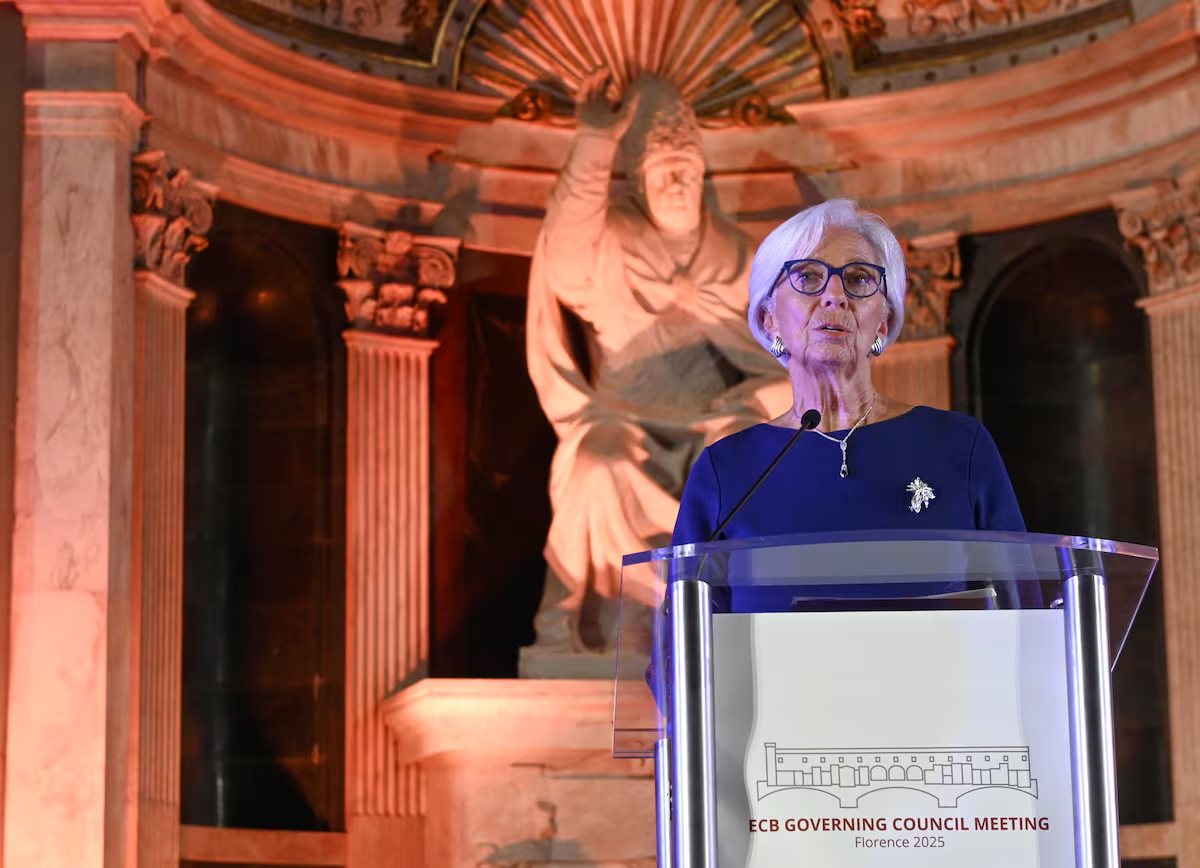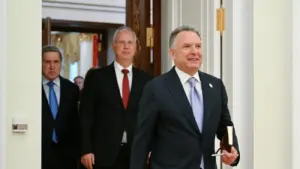
The press conference after the ECB meeting in Florence last Thursday placed a lot of focus on issues that have little to do with monetary policy, such as the introduction of the digital euro or the state of the Italian economy, which is symptomatic of the central bank being comfortable with the current level of interest rates. The increases until mid-2023 managed to moderate the sharp explosion of post-pandemic inflation without generating a recession (with the invaluable help of fiscal policy), and subsequently rates reached 2% without unanchoring inflation expectations. The European economy is growing around its potential and prices are increasing by around 2%. Rates will likely remain at these levels for a long time, unless conditions change.
And the debate now focuses on these. Lagarde sounded relatively optimistic about eurozone growth. 0.2% in the third quarter seems low, but it is not that low when you take into account that in the first half of the year progress was greater than expected due to the advance of exports to avoid tariffs. The risks to growth are lower than before, according to Lagarde, thanks to the recent trade agreement with the United States (which generates a certain stability, even if its implementation did not satisfy many) and the temporary improvement in relations between the country and China. But he also recognized that the global environment continues to be enormously uncertain, and this is due to the frenetic geopolitical landscape and the ups and downs of American economic policy: no one would bet that we will not have surprises in the next three years.
As for inflation, Lagarde does not seem concerned about the slight acceleration since August as wage indicators point to moderation, but highlighted the risk of bottlenecks linked to Chinese control of rare earths. Perhaps disagreements within the Governing Council over inflationary pressures will continue, but for now its members appear to co-exist without making too much noise.
And if, once the macroeconomic variables have stabilised, the ECB gives way to other topics of discussion, it is also a signal that Europe must now focus on other levers to achieve its medium and long-term objectives: improving potential growth, correcting the alarming gaps with the United States and China on multiple fronts (digital, energy, competitiveness) and establishing its own strategic autonomy. The diagnoses are quite clear (the reports by Enrico Letta and Mario Draghi are a broad summary) and it is now necessary to put them into practice. Do something, as Draghi said.







